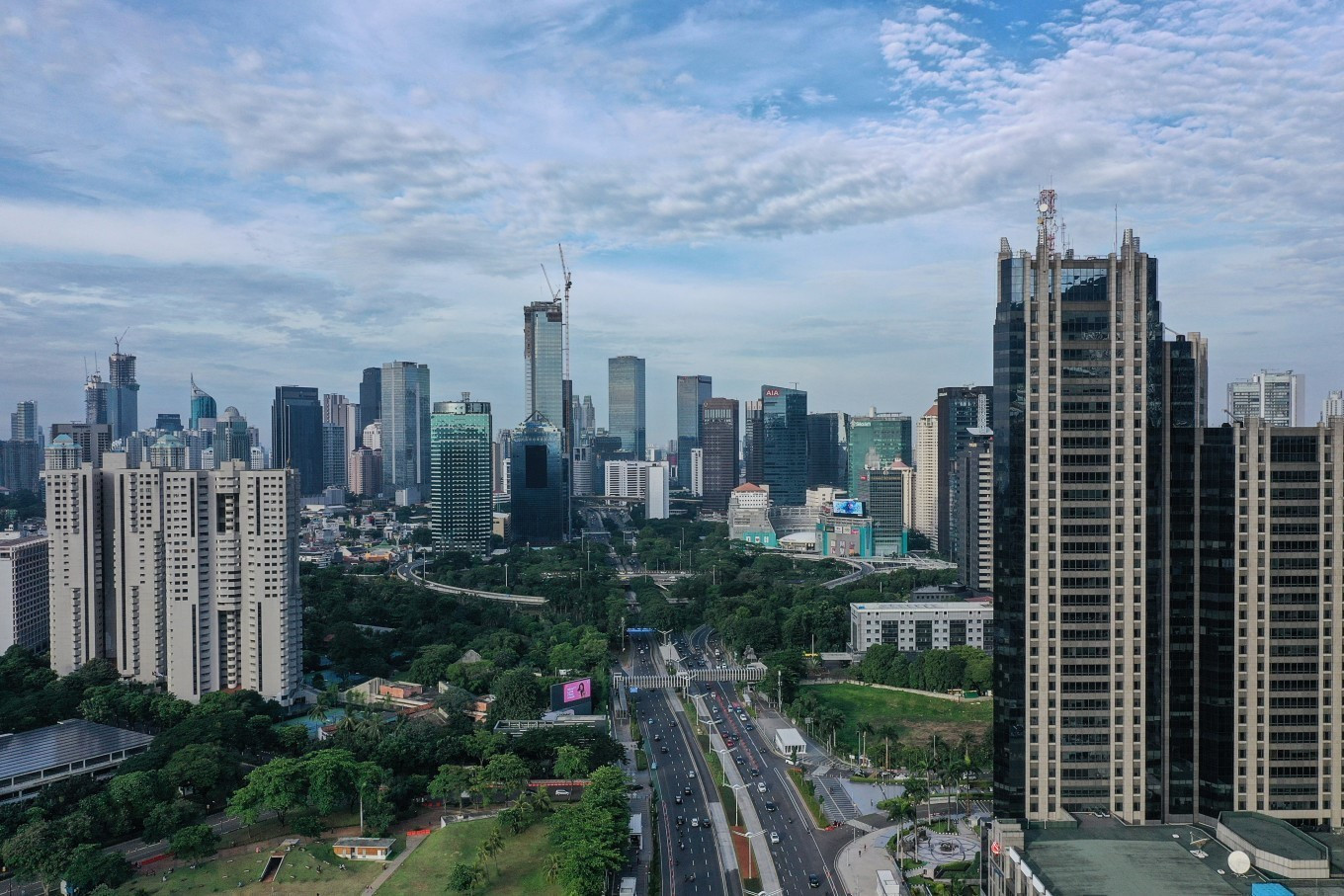News
Indonesia’s competitiveness ranking falls amid weakening fundamentals
Tenggara Strategics July 4, 2025 High-rise buildings are seen in the Sudirman Central Business District in South Jakarta on March 14, 2021. (AFP/Adek Berry)
High-rise buildings are seen in the Sudirman Central Business District in South Jakarta on March 14, 2021. (AFP/Adek Berry)
Indonesia’s position in the World Competitiveness Ranking (WCR) has dropped significantly, according to the World Competitiveness Yearbook (WCY) 2025, released in June by the International Institute for Management Development (IMD). The annual ranking evaluates 69 economies using global, regional, and national statistics, as well as surveys of corporate executives. The report highlights Indonesia’s sharp decline across key competitiveness indicators, amid ongoing economic headwinds.
Indonesia’s rank fell 13 places to 40th out of 69 countries globally, dropped three places to 11th out of 14 Asia-Pacific economies, and declined six spots to 16th among 32 countries with populations over 20 million. Furthermore, 66.1 percent of Indonesian executives surveyed cited economic opportunity as the main driver of societal polarization—the third-highest proportion among all countries surveyed —reflecting rising inequality concerns amid slowing growth.
The WCR assesses competitiveness across four pillars: economic performance, government efficiency, business efficiency, and infrastructure. Indonesia’s weakest performance lies in infrastructure and government efficiency categories. In 2025, Indonesia’s infrastructure rank dropped five spots to 57th globally with a score of 59. For its indicators, basic infrastructure fell by 11 places to 33rd, technological infrastructure down 14 to 46th, scientific infrastructure plunged five to 50th, while health and environment, as well as education education, slipped by two to 63rd and 62nd, respectively.
Likewise, government efficiency fell 11 places to 34th, scoring 53.5. The institutional framework indicator down by 26 to 51st, business legislation fell seven to 49th, societal framework plunged eight to 47th, and public finance slipped six to 24th. Only tax policy showed improvement, rising two spots to 10th.
Business efficiency also deteriorated, falling 12 positions to 26th with a score of 59. Within this pillar, productivity and efficiency dropped 14 places to 44th, the labor market fell eight places to 10th, finance slipped 12 to 37th, management practices dropped 20 to 30th, and attitudes and values declined 14 to 26th.
In contrast, economic performance remained stable at 26th with a score of 58.7. The domestic economy improved slightly to 9th, international trade rose to 46th, and employment jumped 15 places to 17th. However, international investment fell to 46th and price stability slipped to 16th.
Contributing to these rankings is the continued contraction in the manufacturing sector. S&P Global has released their PMI survey results for June 2025, with Indonesia continuing its PMI contraction from 46.7 in April 2025 to 47.5 in May 2025. The drop in new orders for the second straight month is the worst since August 2021. Despite weaker demand for production input, average lead time lengthened the most in nine months amid poor weather and delivery delays. On the other hand, firms are confident the downturn will pass as they raised employment to the highest level in three months, while confidence for the 12-month output outlook also improved.
Meanwhile, credit growth has slowed, further reflecting economic cooling. Bank Indonesia (BI) revealed that bank loan growth slowed from 8.88 percent year-on-year (yoy) in April 2025 to 8.43 percent yoy in May 2025, while their third-party funds (TPF)’s growth slowed from 5.55 percent yoy to 4.29 percent yoy in the same time period. Based on loan usage, investment, working capital, and consumption loans grew by 13.74 percent yoy, 4.94 percent yoy, and 8.82 percent yoy, respectively; while sharia as well as micro, small, and medium enterprise (MSME) loans grew by 9.19 percent yoy and 2.17 percent, respectively. Overall, BI forecasted bank loan growth of 8 to 11 percent for 2025.
Taken together, these developments point to deeper structural challenges. Indonesia’s decline in government efficiency rank potentially indicated the ineffectiveness of the Prabowo Subianto administration’s budget austerity for the trade-off from its negative impacts, which could be identified in the drop of Indonesia’s rankings for infrastructure efficiency and its indicators. The continued contraction of Indonesia’s PMI, rising average lead time, the drop in new orders, likely contributed to its fallen business efficiency rank, with the loan growth slowdown affecting the decreased rank for the category’s finance indicator. Indonesia’s latest competitiveness score thus underscores the urgent need for more coordinated and reform-driven responses to reverse the country’s downward trend.

